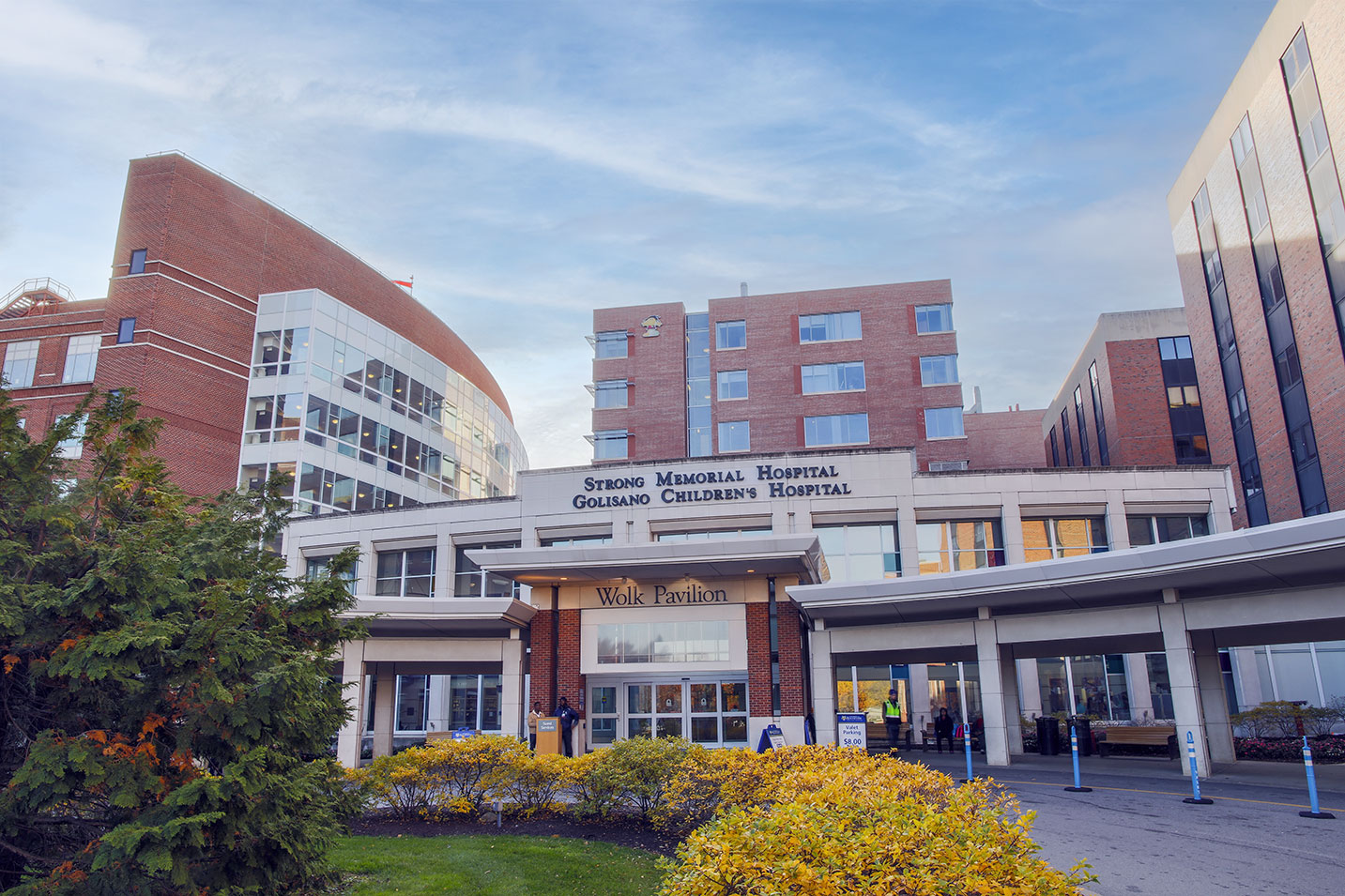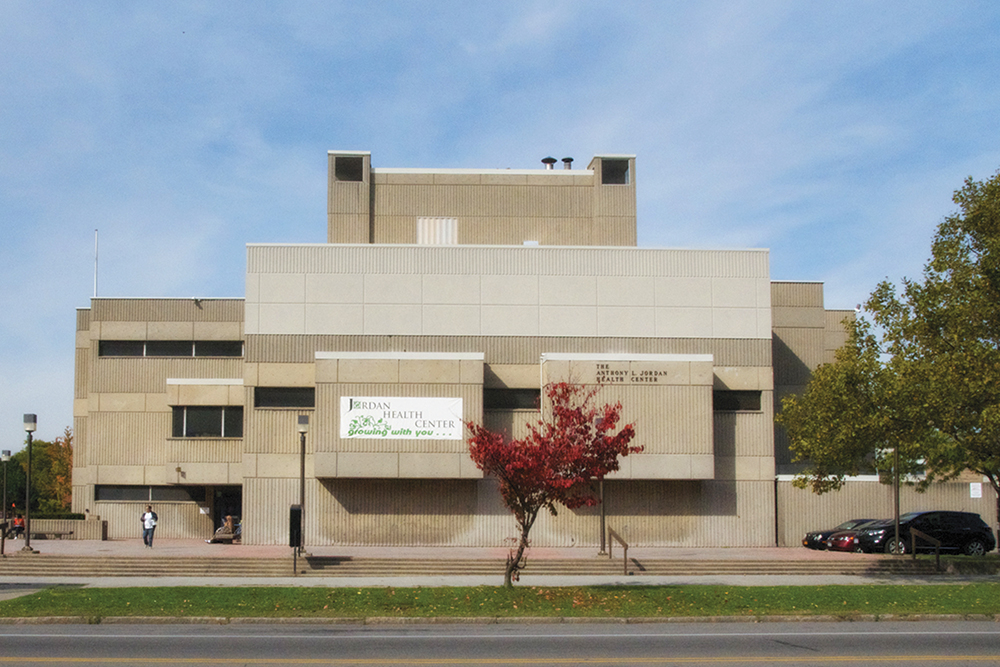Heart Transplant
Make Appointments & Get Care
Overview
Heart transplants give patients a second chance, bringing hope during a difficult time. That's why UR Medicine is proud to be the only heart transplant hospital in Upstate New York.
At UR Medicine, we know a heart transplant is a lifelong commitment for you and for us. We're with you every step of the way.
We're an experienced team that has performed over 300 heart transplants. We also have the Rochester metropolitan area and surrounding region's only advanced heart failure program, including one of the region's only Ventricular Assist Device (VAD) programs. And our outcomes are among the best in the nation.
UR Medicine's Approach
We recognize that preparing for a transplant and living with it will affect your life in many ways. So we get to know you well, and we’ll help you maintain and resume many of your activities and even become involved in new ones.
Some patients who aren't eligible for a heart transplant immediately may be able to get a Ventricular Assist Devices (VAD). VADs, also called “heart pumps,” are implanted into your heart to help it pump blood throughout your body. This option can keep patients alive and healthy while they wait for a transplant. Other patients who will never qualify for a heart transplant may be able to keep their VADs permanently.
But our definition of success extends far beyond the operating room. We dedicate the time and resources to making your life after the transplant itself as successful as possible.
Our heart transplant team includes:
- Transplant surgeons who perform your heart transplant procedure
- Cardiologists who care for your heart before and after surgery
- Pharmacists who dispense medication and answer questions you may have about it
- Psychiatrist who takes care of your mental and emotional health
- Social worker who helps you and your family understand and process your diagnosis
- Transplant coordinator who schedules your appointments and helps you understand the transplant process
- Dietitians who help ensure you are getting proper nutrition throughout the transplant journey and educate you on the type of diet you may need to follow
- Transplant ID physicians who provide comprehensive care for the evaluation and management of infectious diseases in pre- and post-transplant patients. Their goal is to prevent and treat infectious complications.
- Patients are important members of their care team. You will always be up-to-date about your treatment and you will be involved in the decision-making related to your care
Recovery
You’ll probably stay in the hospital for 7 - 14 days after surgery. You’ll go to the Inpatient Transplant Unit where you’ll take medicines to prevent infections and rejection of your new organ. Your doctor will check for bleeding and other problems.
You’ll also be prepared for your return home. You’ll be given a schedule for follow-up visits and routine blood draws, and a 24-hour phone number for emergencies or other problems. You’ll learn how to deal with the medicines you’ll be taking and their side effects, recognize rejection symptoms, plan proper diets and generally take responsibility for your recovery at home. The transplant coordinator, social worker, and psychiatrist are all available when needed. The social worker will help arrange your discharge needs, such as rehabilitation or long-term placement, chemical dependency counseling, and transportation home. You’ll also be offered a referral to a community health nurse who can help you at home.
Long Term Management
After you leave the hospital, you’ll return on a regular schedule for follow-up visits. A medical team will follow your progress throughout your life. You’ll have regular blood tests to make sure that your new organ is not being damaged by rejection, infections, or other problems. Over time, both the frequency of lab tests and the doses of medicine are reduced.
You’ll need to eat a healthy diet and exercise and use medicines, including ones you can buy without a prescription, only if your doctor says they’re safe for you.
You can drink more fluids and eat many of the fruits and vegetables you were previously told to avoid. You may even need to gain a little weight, but be careful not to gain too much weight too quickly and avoid salty foods that can lead to high blood pressure. It’s important to work with our dietitian to make sure you’re following a healthy eating plan and to follow your doctor’s advice to take care of your new kidney.
Returning to Normal Activities
After a successful organ transplant, most people can go back to their normal daily activities. Getting your strength back will take some time, though, depending on how sick you were before the transplant. You’ll need to check with your transplant team on how long your recovery period should be. Social workers and support groups will help you adjust to life with a new organ.
Eventually, though, you’ll be able to return to work, engage in normal exercise, and return to a normal sex life. However, women should avoid becoming pregnant during the first year after a transplant. It’s best to consult with your doctors about sex and pregnancy.
Patient Stories
Near Death a Thousand Times
After a diagnostic test reveals that he has been near death more than a thousand times, Mike Froome is put on the waiting list for a heart transplant. Watch his story.
Young Mother Faces Fight for Her Life
The Power of Organ Donation
What Sets Us Apart?
At UR Medicine, our approach to care is guided by the biopsychosocial model, which was founded here at the University of Rochester and has shaped care across the country.
The biopsychosocial model means that we treat the whole patient. We believe you’re more than your illness — you’re an individual. Your physical health is just one piece of the puzzle. Many other factors affect your health, including where you live, your mental health, and your family and social support, for example.
We consider all of these elements and personalize your treatment based on what is best for you. This includes providing a psychiatrist and social worker who will ensure that your mental and emotional health are being cared for.
Having a transplant doesn't just affect you physically — it can also be challenging emotionally and mentally. That’s why UR Medicine offers a team of experts, including a social worker, a transplant psychiatrist and a coordinator. We make sure you have people who you can talk to, who can support you and help you.
UR Medicine is one of the most experienced VAD centers in the country. We were the first in the region to offer VADs to patients, and we provide the most advanced options, including those that are implanted using minimally invasive surgery.
If you receive a VAD at UR Medicine and eventually need a transplant, our providers will already be familiar with your condition and your needs, allowing them to personalize your transplant care.
The University of Rochester founded the biopsychosocial model, which treats the whole patient rather than just disease. We consider all your life circumstances, personalizing your treatment based on what’s best for you. This includes providing a transplant psychiatrist and social worker who look after your mental and emotional health.
It takes a team to perform a transplant. We have a team of expert surgeons from all over the world. You can see the excellent outcomes of our transplantation program by visiting:
- United Network for Organ Sharing (UNOS)
- U.S. Department of Health & Human Services
- Scientific Registry of Transplant Recipients
We aim to make this as simple and stress-free as possible for patients and their families. For patients traveling from out of town, we have partnerships with local organizations that provide your family with affordable places to stay, such as the Hope Lodge and Harbor House.
Locations
View All LocationsWe serve you in the Rochester metropolitan area and surrounding region.
View All Locations4 locations
Ambulatory Care Center at Strong Memorial Hospital
601 Elmwood Avenue, Ground Floor
Rochester, NY 14626
Ambulatory Care Center at Strong Memorial Hospital
601 Elmwood Avenue, 2nd Floor
Rochester, NY 14642
Anthony L. Jordan Health Center
82 Holland Street
Rochester, NY 14605
84 Canal Street, Suite 8
Big Flats, NY 14814

